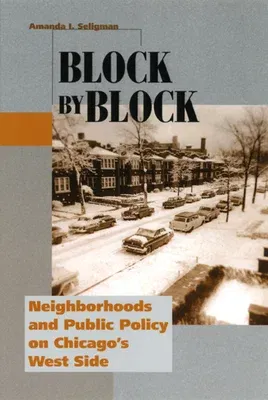Amanda I Seligman
(Author)Block by Block: Neighborhoods and Public Policy on Chicago's West SideHardcover, 10 May 2005

Qty
1
Turbo
Ships in 2 - 3 days
In Stock
Free Delivery
Cash on Delivery
15 Days
Free Returns
Secure Checkout

Part of Series
Historical Studies of Urban America
Print Length
320 pages
Language
English
Publisher
University of Chicago Press
Date Published
10 May 2005
ISBN-10
0226746631
ISBN-13
9780226746630
Description
Product Details
Author:
Book Format:
Hardcover
Country of Origin:
US
Date Published:
10 May 2005
Dimensions:
23.57 x
16.41 x
2.41 cm
ISBN-10:
0226746631
ISBN-13:
9780226746630
Language:
English
Location:
Chicago, IL
Pages:
320
Publisher:
Weight:
544.31 gm